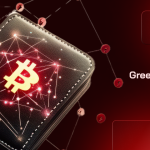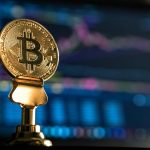
Japanese investment firm Metaplanet purchased 330 Bitcoin worth $28 million on Monday, increasing its total holdings to 4,855 BTC, valued at $414.5 million. The company says their ongoing Bitcoin buying spree is more than just an investment—it’s their “exit strategy.”
Simon Gerovich, CEO of Metaplanet, announced the purchase on April 21, noting that the company had achieved a Bitcoin yield of 119.3% so far in 2025.
The Tokyo Stock Exchange-listed firm (TSE: 3350) paid an average price of $85,605 per Bitcoin. This latest acquisition makes Metaplanet the largest corporate holder of Bitcoin in Asia and the tenth largest worldwide.
The firm has set ambitious targets, aiming to hold 10,000 BTC by the end of 2025 and 21,000 BTC by 2026. To fund these purchases, Metaplanet issued 2 billion JPY ($13.3 million) in zero-interest bonds in March 2025 and plans additional financing rounds.
Metaplanet’s strategy mirrors that of American firm Strategy (formerly MicroStrategy), founded by Michael Saylor. Both companies have shifted from their original business focus to become what market watchers now call “Bitcoin treasuries.”
Since starting to buy Bitcoin in April 2024, Metaplanet’s stock has jumped over 1,200%, although it fell 1% after Monday’s announcement.
The company’s average purchase price across all its Bitcoin holdings is $85,386 per coin. It tracks performance using a custom metric called “BTC Yield,” which measures the growth of Bitcoin per fully diluted share rather than traditional financial metrics.
Dylan LeClair, Director of Bitcoin Strategy at Metaplanet, explained the company’s unusual approach: “Our benchmark is Bitcoin itself. Our mission is to maximize Bitcoin per share for our shareholders.”
“Bitcoin is not just an asset; it is our exit strategy,” he added.
Last month, Metaplanet appointed Eric Trump, son of US President Donald Trump, to its newly formed Strategic Advisory Board, citing his “business expertise and passion for Bitcoin.”
The purchase comes as Bitcoin trades around $87,000, up about 2.5% in the past 24 hours despite market concerns about US tariff policies.

















